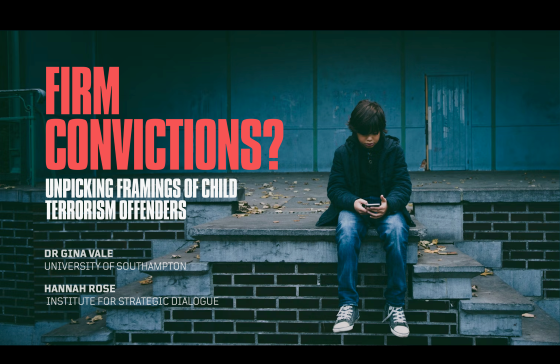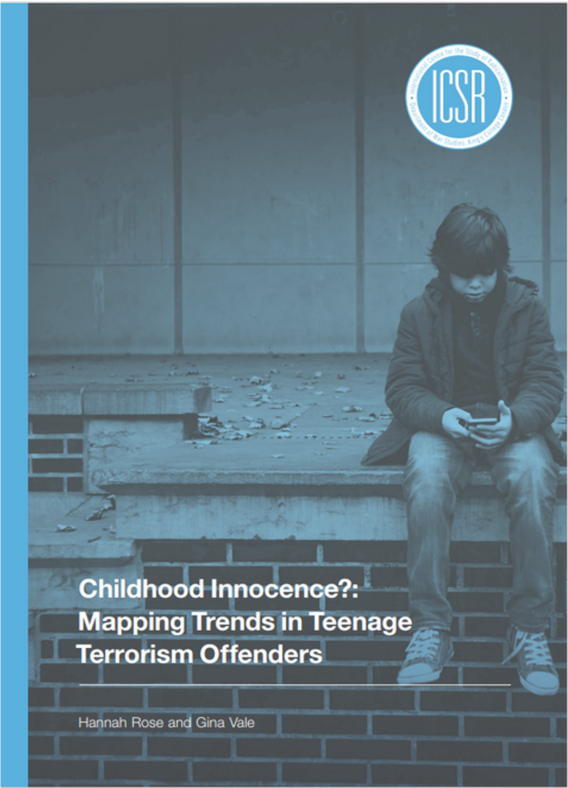Project overview

Recent years have seen a sharp rise in cases of “homegrown” teenage attack-plotters, self-initiated travellers to terrorist-held territory, and bedroom propagandists. The consequences of minors’ involvement in terrorism raises important questions regarding the nature of extremist engagement and the risk posed by young people.
The ‘Childhood Innocence Project’ – led by Dr Gina Vale, Lecturer of Criminology at the University of Southampton and Hannah Rose, Senior Research and Policy Manager at the Institute for Strategic Dialogue – maps trends in judicial responses to terrorist-associated minors, and points to important warning signs of compounding criminality, potential recidivism and inconsistencies in rehabilitative opportunities.
The authors compiled the first cross-ideological dataset of minors convicted of terrorism offences in England and Wales since 2016. It captures minors’ demographics; ideological affiliations; offences, pleas, and sentences; and connections with co-defendants. Full information on the data sources and inclusion criteria can be found in the methodology of the authors’ analytical report ‘Childhood Innocence?: Mapping Trends in Teenage Terrorism Offenders’.

The current wave of child engagement in terrorism in England and Wales shows no sign of slowing down. Therefore, the authors will continue to update the dataset as a ‘live’ resource as and when new cases are confirmed. The latest version, available on this page is date-stamped accordingly.
The Childhood Innocence Project dataset aims to give researchers, practitioners, and policymakers access and insight into the roles played by young people in extremist ecosystems and their radicalisation pathways. In an era of rising extremist youth activism, greater understanding and better response planning should be a priority for counter-terrorism scholars and practitioners.
Please click here to access this live dataset, last updated 13 February 2026.
Data Usage Statement
The data has been collated and made available with explicit consideration of potential risk to individuals’ rights and freedoms under the Data Protection Act 2018 and associated regulations. It should only be used in accordance with the lawful basis under which the original research was undertaken: archiving purposes in the public interest, scientific or historical research purposes, or statistical purposes. For further information or any queries, please contact the authors at: childhood.innocence@proton.me
Press/Media
- New report shines a light on the scope and scale of teenage terrorism offenders for the first time
- Researching children and terrorism: the pros and woes of building an original dataset
- Rise in number of school kids being drawn into far-right extremism by online hate, Sunday Mirror, 30 November 2025
- “‘I hate my school": why are more British teenagers plotting shooting attacks?', The Observer, 2 March 2025
- 'A U.K. Teen Became Fixated on Extreme Violence. But Was It Terrorism?', The New York Times, 30 January 2025.
- 'The terrifying rise of child terrorists in the UK – and why a “successful" attack looks inevitable', The Telegraph, 10 January 2025.
- ‘Weaponised autism and the extremist threat facing children’, Financial Times, 18 October 2024.
- ‘“The “Perfect Storm” Turning Teenagers into Terrorists’, The Telegraph, 16 April 2024.
